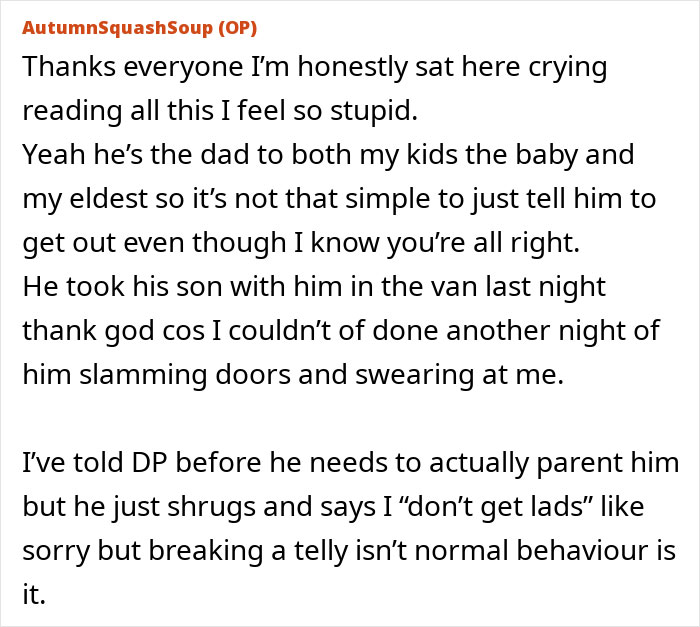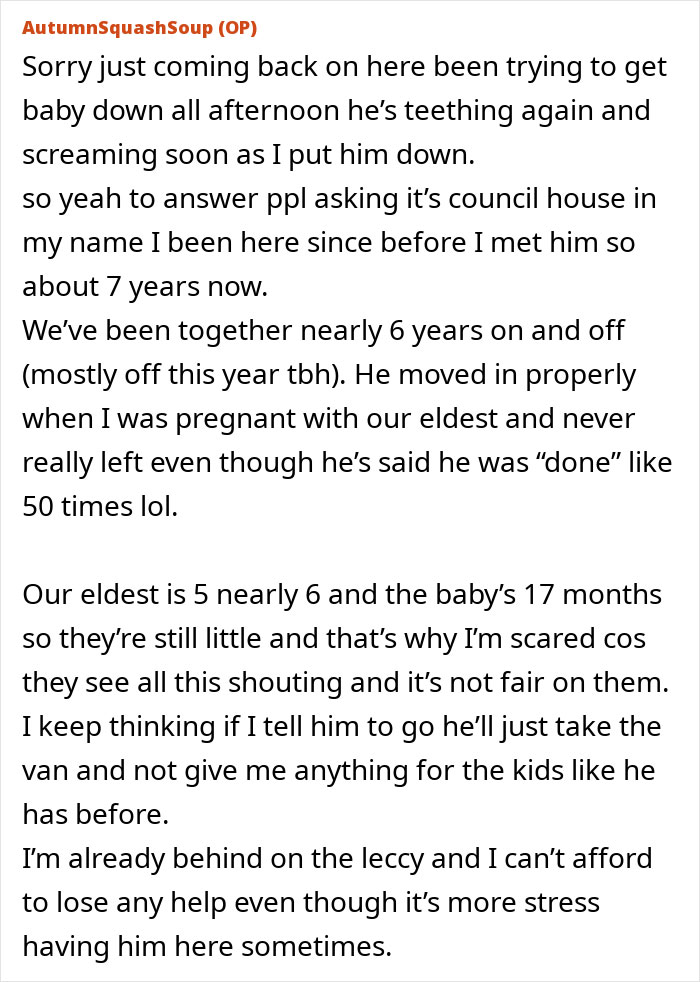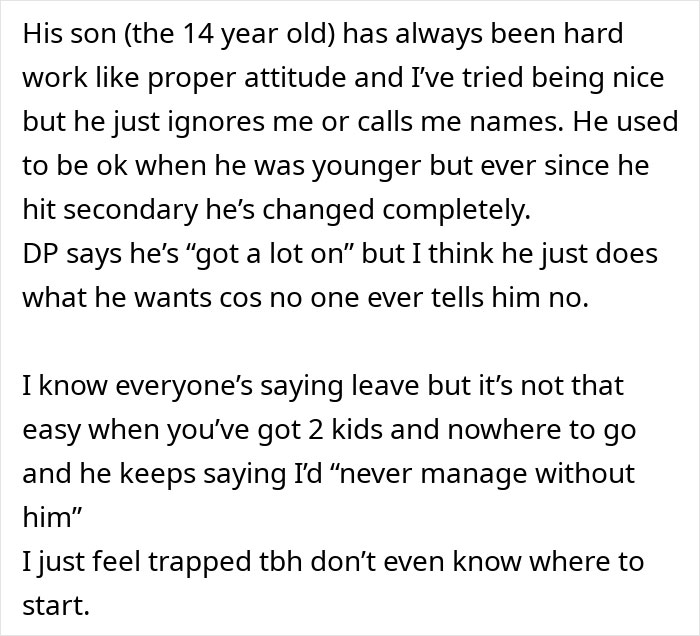The changes teens go through while transitioning from children to adolescents can amplify emotions, like sadness and anger. It’s a common challenge that parents have to face, but that doesn’t mean that all of them know how to overcome it.
Like this couple, who were unsure about how to handle their son’s violent and aggressive outbursts. One day, after the teen smashed their TV, the dad chose to blame the wife for it, which left her in complete shock. At her wits’ end, she turned online to ask for some advice on how to approach this issue.
It’s common for teenagers to experience mood swings

Image credits: brotherlymoses (not the actual photo)
But this teen was becoming violent, and his stepmom no longer knew what to do




Image credits: africaimages (not the actual photo)



Image credits: AutumnSquashSoup
Due to life and physical changes, teens are usually more irritable or angry
Teens may seem more irritable or angry than normal because the major life changes they go through, combined with their developing brains, lead to mood swings and angry outbursts. Hormonal changes, desire for independence, social influences, responsibilities, and self-discovery are all factors that can contribute to this.
“When a teen feels angry or irritable, it’s often a combination of them actually feeling disappointed, embarrassed, guilty, or sad,” says Laura White, PhD, MS, a child and adolescent psychologist.
“It comes out as anger because they don’t have the words or ability to express it. Their brains aren’t fully developed until their 20s, so while they can think abstractly and feel these big feelings, they don’t quite have the ability to engage in impulse control, emotion regulation, or just taking a moment to think before saying or acting out in an angry way.”
Usually, intense mood swings naturally go away as the teen develops into a full-blown adult. Until that happens, parents have to try their best to keep their cool and approach their outbursts gently and respectfully without yelling.
“I encourage all parents when chatting with a teen that’s moody or angry to be a model of good emotional regulation,” White says. “If you stay calm and neutral, they’re likely going to match you, but if you yell and scream, it’s going to continue to escalate.”

Image credits: RDNE Stock project (not the actual photo)
Extreme mood swings in adolescence can be the cause of something more serious
However, sometimes extreme mood swings in adolescence can be the cause of something more serious, like mental health issues. Some red flags to look out for include violent, aggressive behavior, damaging property, isolation, bullying others, verbal abuse, and talking about hurting themselves or others.
If parents face lashing out from teenagers, they should put safety first and let them know that violence isn’t acceptable. In case they don’t calm down, it’s best to remove oneself from such a situation. Some trustworthy sources even suggest calling the police if things get out of hand.
If a teen is participating in harmful behaviors, it might also be time to seek mental health support to determine the cause and ways to cope with it. “Addressing the root cause of aggression will support teens to reduce aggressive behaviors. And more important, treatment will give teens the support they need to heal and succeed in other areas of life as well,” the Newport Academy suggests.
“Depression, bipolar disorder, and anxiety disorders are just a few of the mental health issues that commonly emerge during adolescence,” Amy Morin, LCSW, noted. “Mental health issues are treatable, so it’s important to seek professional help if you think your teen is experiencing a deeper issue than mood swings. Talk to your child’s pediatrician or a trained counselor about any concerns you may have.”

Image credits: Kindel Media (not the actual photo)
The woman provided more information about the situation




Commenters encouraged to dump the husband
























 Follow Us
Follow Us





